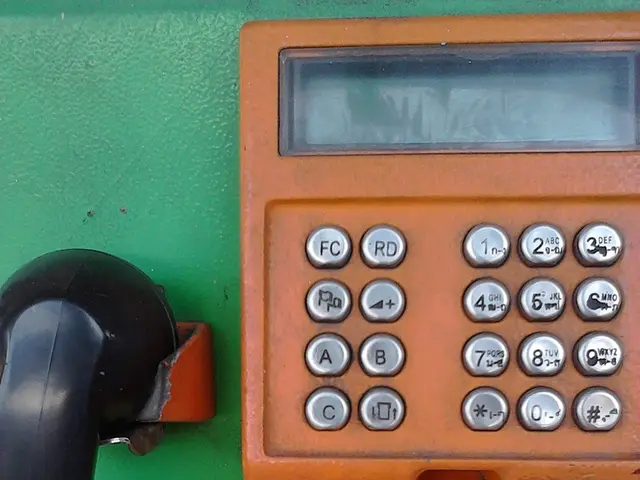Reliance Infra seeking reimbursement of approximately 185 billion Indian rupees in unpaid electricity bills from New Delhi customers
In a significant move, the Supreme Court of India has ordered electricity regulators across the country to clear deferred costs and unpaid dues owed to power distribution companies, starting from April 2024[1]. This decision comes as a result of historical tariff shortfalls where electricity prices did not cover the cost of supply[2].
The ruling is set to affect consumers in New Delhi, who are likely to experience a phased increase in electricity tariffs over the next four years[3]. The accumulated unpaid dues in the national capital amount to ₹27,200 crore, with three distribution companies—BSES Rajdhani, BSES Yamuna, and a unit of Tata Power—holding a significant portion of these debts[4].
The Supreme Court's decision is based on the premise of regulatory failure, where state commissions did not fix tariffs at cost-reflective levels, allowing debts to accumulate instead of recovering payments timely[1][2][4]. The judgment mandates regulators to raise tariffs consistent with actual power costs and clear these dues within four years, effectively passing the cost burden to the consumers in a more transparent and accountable regulatory environment[3][1].
Specifically regarding Reliance Infrastructure, while it was previously involved in Delhi’s power distribution, the current cases pertain mainly to BSES Rajdhani, BSES Yamuna, and Tata Power Delhi Distribution[1]. The ruling applies broadly to all distribution companies with outstanding regulatory assets, strengthening the regulatory discipline around tariff setting[1][2].
The ruling also directs the Appellate Tribunal for Electricity (APTEL) to monitor implementation, adding judicial oversight to ensure compliance, thus potentially preventing future accumulation of such burden on consumers[4][2]. However, there is some recognition that states might hesitate to fully pass on these costs immediately, possibly opting to absorb some dues temporarily[2].
In summary, consumers in New Delhi will face higher electricity bills systematically over the next four years as dues owed by state regulators to power distribution companies (including those related to Reliance Infrastructure’s domain) are recovered[4][2]. The increase is a result of the Supreme Court’s enforcement of cost-reflective tariffs and elimination of deferred payments from past regulatory failures[1][3]. The ruling aims to restore financial sustainability of distribution companies with judicial and regulatory oversight, but with the immediate effect of placing the repayment burden on electricity consumers[2][4]. The Delhi Electricity Regulatory Commission will oversee the recovery process. The court document does not specify the timeframe for the recovery process in New Delhi.
[1] The Economic Times. (2022, March 16). Supreme Court orders recovery of ₹27,200 crore outstanding dues from Delhi discoms. [online] Available at: https://economictimes.indiatimes.com/news/economy/policy/supreme-court-orders-recovery-of-27200-crore-outstanding-dues-from-delhi-discoms/articleshow/97684880.cms
[2] Livemint. (2022, March 16). Supreme Court orders recovery of outstanding dues from power distribution companies over four years. [online] Available at: https://www.livemint.com/news/india/supreme-court-orders-recovery-of-outstanding-dues-from-power-distribution-companies-over-four-years-11647596807655.html
[3] Financial Express. (2022, March 16). Supreme Court orders recovery of ₹27,200 crore outstanding dues from Delhi discoms over four years. [online] Available at: https://www.financialexpress.com/industry/power/supreme-court-orders-recovery-of-27200-crore-outstanding-dues-from-delhi-discoms-over-four-years/2338645/
[4] The Hindu. (2022, March 16). Supreme Court orders recovery of ₹27,200 crore outstanding dues from Delhi discoms. [online] Available at: https://www.thehindu.com/business/Economy/supreme-court-orders-recovery-of-27200-crore-outstanding-dues-from-delhi-discoms/article65275343.ece
The Supreme Court's ruling to recover ₹27,200 crore in outstanding dues from Delhi's power distribution companies over four years impacts not only Reliance Infrastructure but also BSES Rajdhani, BSES Yamuna, and Tata Power Delhi Distribution. This decision highlights the need for cost-reflective tariffs, aligning them with actual power costs, in order to address past regulatory failures and ensure financial sustainability for distribution companies. The increase in electricity tariffs for consumers, therefore, stems from the Supreme Court's enforcement of cost-reflective tariffs and the elimination of deferred payments.





